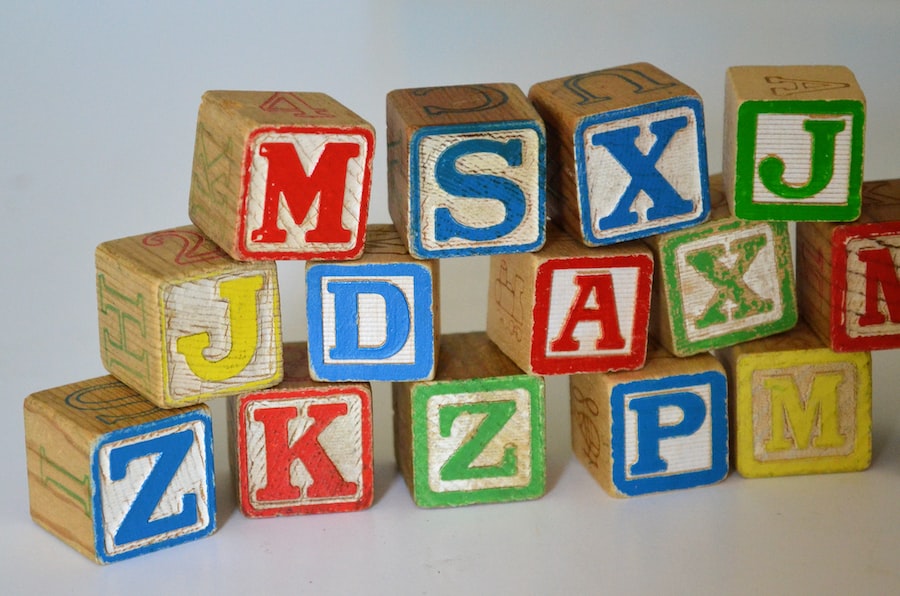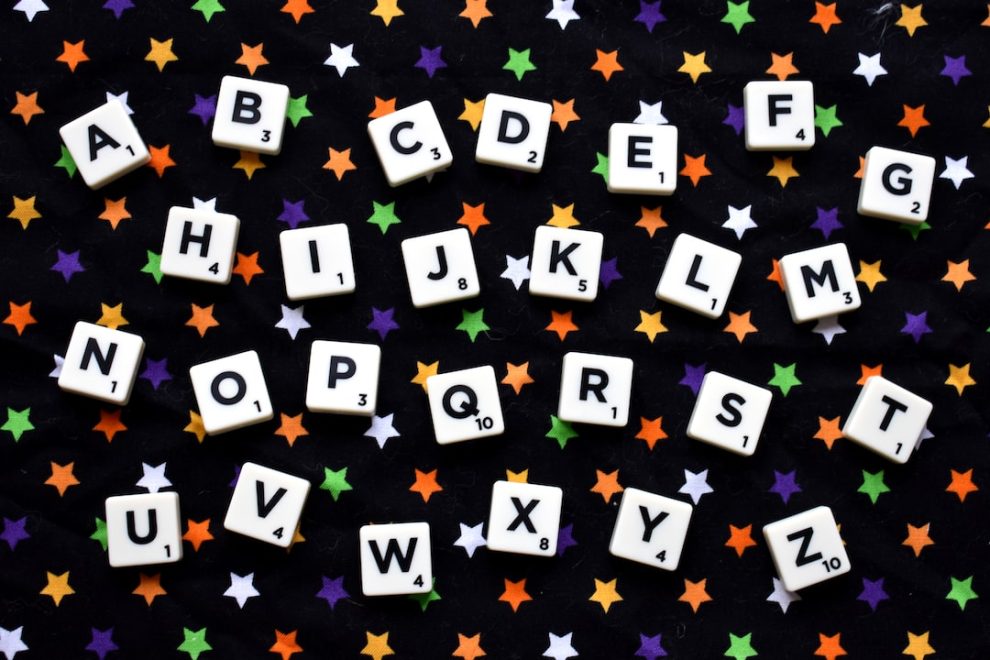Language is a fundamental aspect of human communication and society. It is through language that we are able to express our thoughts, emotions, and ideas, and it plays a crucial role in shaping our interactions with others. Language allows us to connect with people from different cultures and backgrounds, fostering understanding and empathy. Without language, the world would be a much different place.
The Origins of Language: Tracing the Evolution of the Alphabet
The history of language can be traced back thousands of years, and the evolution of the alphabet has played a significant role in its development. The earliest known writing systems can be found in ancient Mesopotamia, Egypt, and China, where symbols were used to represent words and concepts. Over time, these symbols evolved into more abstract forms, eventually leading to the creation of alphabets.
The Phoenicians are credited with creating the first true alphabet around 1200 BCE. Their alphabet consisted of 22 consonant symbols, which were later adopted by the Greeks and Romans. This alphabet served as the foundation for many modern writing systems, including the Latin alphabet used in English.
The Building Blocks of Language: Understanding Phonetics and Phonology
Phonetics and phonology are two branches of linguistics that study the sounds and patterns of language. Phonetics focuses on the physical properties of speech sounds, while phonology examines how these sounds function within a particular language.
Every language has its own set of sounds, known as phonemes, which are combined to form words. These phonemes can vary greatly between languages, which is why some sounds may be difficult for non-native speakers to pronounce.
In addition to individual sounds, languages also have patterns of sound combinations known as phonotactics. These patterns determine which sounds can occur together in a particular language. For example, English allows words to begin with “st” (as in “stop”), while other languages may not.
The Art of Communication: Exploring the Power of Language
Language is a powerful tool that allows us to convey meaning and emotion. Through language, we are able to express our thoughts, share our experiences, and connect with others on a deep level. Language can be used to inspire, persuade, and entertain, and it plays a crucial role in personal and professional relationships.
Effective communication is essential in all aspects of life. Whether it’s giving a presentation at work, having a conversation with a friend, or writing an essay, the ability to communicate clearly and effectively is key. Language allows us to articulate our ideas and engage with others in meaningful ways.
The Rules of Grammar: A Guide to Syntax and Semantics
Grammar is the set of rules that governs how words are combined to form sentences in a particular language. It encompasses both syntax, which deals with the structure of sentences, and semantics, which focuses on the meaning of words and sentences.
Syntax refers to the order and arrangement of words in a sentence. Different languages have different rules for word order, which can affect the meaning of a sentence. For example, in English, we typically use subject-verb-object word order (e.g., “I love you”), while in Spanish, the word order is often subject-object-verb (e.g., “Te amo”).
Semantics, on the other hand, is concerned with the meaning of words and how they combine to form meaningful sentences. It involves understanding the relationships between words and their referents. For example, in English, we know that the word “cat” refers to a small domesticated animal with fur, whiskers, and sharp claws.
The Role of Linguistics: Investigating Language as a Scientific Study

Linguistics is the scientific study of language and its structure. It encompasses various subfields, including phonetics, phonology, syntax, semantics, and sociolinguistics. Linguists use empirical methods to analyze language data and uncover the underlying principles that govern language.
One of the main goals of linguistics is to understand how languages are structured and how they function. Linguists study the sounds, words, and grammar of different languages, as well as the social and cultural factors that influence language use.
Linguistics also plays a crucial role in language preservation and revitalization efforts. By documenting endangered languages and studying their structure, linguists can help ensure that these languages are preserved for future generations.
The Influence of Culture: Examining the Impact of Language on Society
Language and culture are deeply intertwined. Language reflects the values, beliefs, and customs of a particular society, and it shapes our understanding of the world around us. Different cultures have different ways of expressing themselves, and language plays a crucial role in maintaining cultural identity.
Language can also be a powerful tool for social change. Through language, marginalized groups can assert their rights and challenge oppressive systems. Language can be used to promote inclusivity, challenge stereotypes, and foster understanding between different cultures.
The Psychology of Language: Analyzing the Relationship between Language and the Brain
The study of language is not only important for understanding communication but also for understanding the human brain. Language acquisition and processing are complex cognitive processes that involve various regions of the brain.
Language acquisition begins at a young age, with infants learning to recognize and produce sounds in their native language. As children grow older, they develop a deeper understanding of grammar and vocabulary.
The brain plays a crucial role in language processing. Different regions of the brain are responsible for different aspects of language, such as speech production, comprehension, and reading. Damage to these regions can result in language disorders such as aphasia.
The Future of Language: Predicting the Evolution of Communication
The way we communicate is constantly evolving, thanks to advancements in technology and the increasing interconnectedness of the world. The rise of the internet and social media has revolutionized the way we communicate, allowing us to connect with people from all over the world in an instant.
As technology continues to advance, it is likely that we will see further changes in the way we communicate. Artificial intelligence and machine learning are already being used to develop translation tools and voice recognition systems, making it easier for people to communicate across language barriers.
Globalization is also having a significant impact on language. As people from different cultures come into contact with one another, languages are borrowing words and phrases from one another, leading to the creation of new hybrid languages.
The Importance of Multilingualism: Embracing Diversity through Language
In a globalized world, multilingualism is becoming increasingly important. Being able to speak multiple languages not only allows us to communicate with a wider range of people but also promotes cultural awareness and understanding.
Multilingualism has numerous benefits. It can enhance cognitive abilities, such as problem-solving and critical thinking skills. It can also improve memory and attention span. Additionally, being able to speak multiple languages can open up new opportunities for travel, work, and personal growth.
The Benefits of Language Learning: Enhancing Cognitive Abilities and Cultural Awareness
Language learning is a lifelong process that can have numerous benefits. In addition to enhancing cognitive abilities, such as memory and problem-solving skills, language learning can also enhance cultural awareness and understanding.
When we learn a new language, we gain insight into the culture and customs of the people who speak that language. We become more empathetic and open-minded, and we develop a deeper appreciation for diversity.
Language learning also allows us to connect with others on a deeper level. When we make an effort to learn someone else’s language, we show respect for their culture and create a stronger bond with them.
Language is a powerful tool that allows us to connect with others, express ourselves, and shape our understanding of the world. It plays a crucial role in personal and professional relationships, and it is essential for effective communication.
By understanding the origins of language, the building blocks of language, and the rules of grammar, we can gain a deeper appreciation for the complexity and beauty of language. Linguistics provides us with a scientific framework for studying language, while also highlighting its cultural and social significance.
As we look to the future, it is clear that language will continue to evolve and adapt to the changing needs of society. Technology and globalization will play a significant role in shaping the way we communicate, but the importance of multilingualism and language learning will remain constant.
In conclusion, language is a fundamental aspect of human communication and society. It allows us to connect with others, express ourselves, and shape our understanding of the world. By exploring the many facets of language, we can gain a deeper appreciation for its power and significance. So let us continue to explore the world of language and embrace its diversity.
















Add Comment